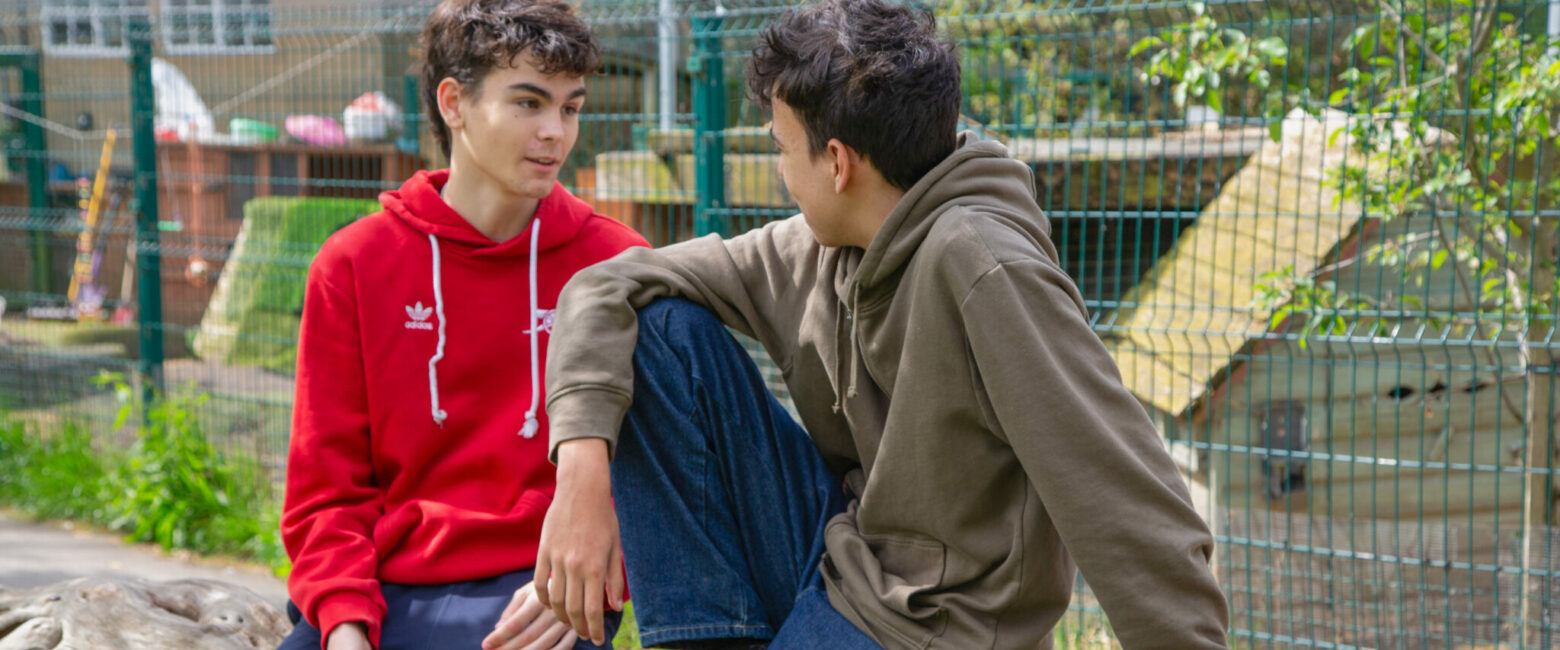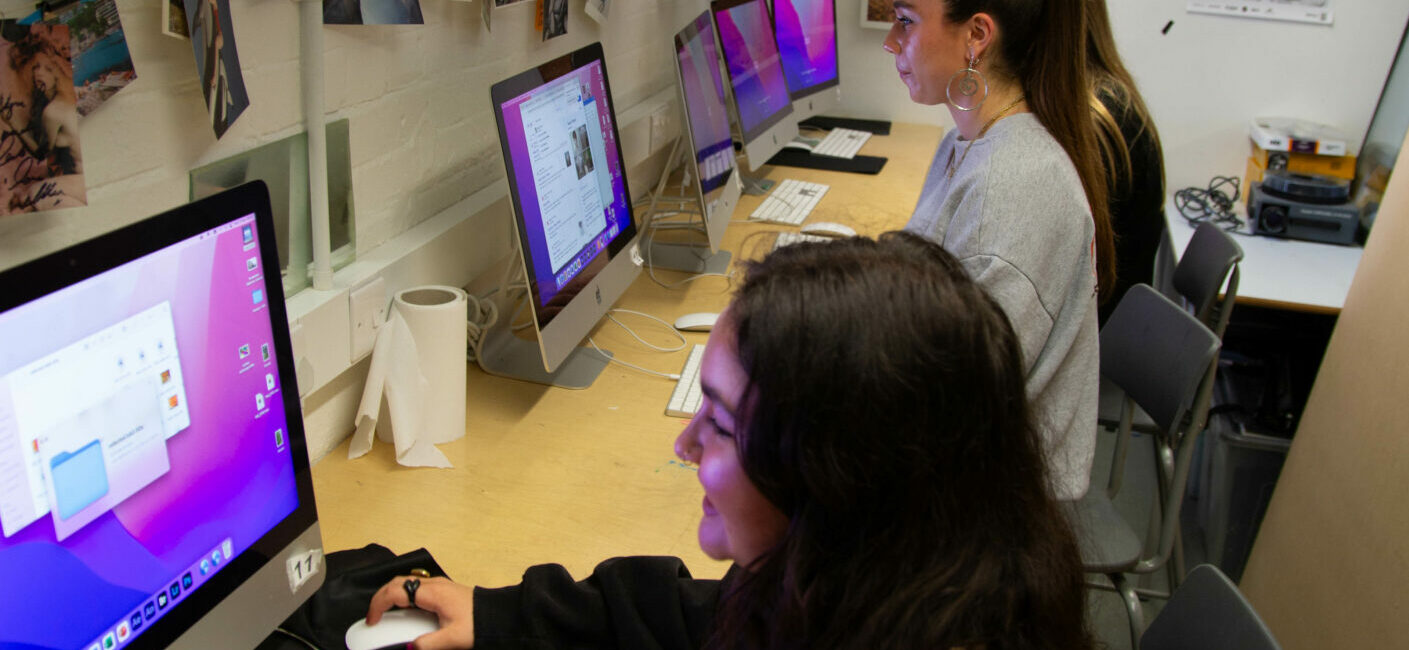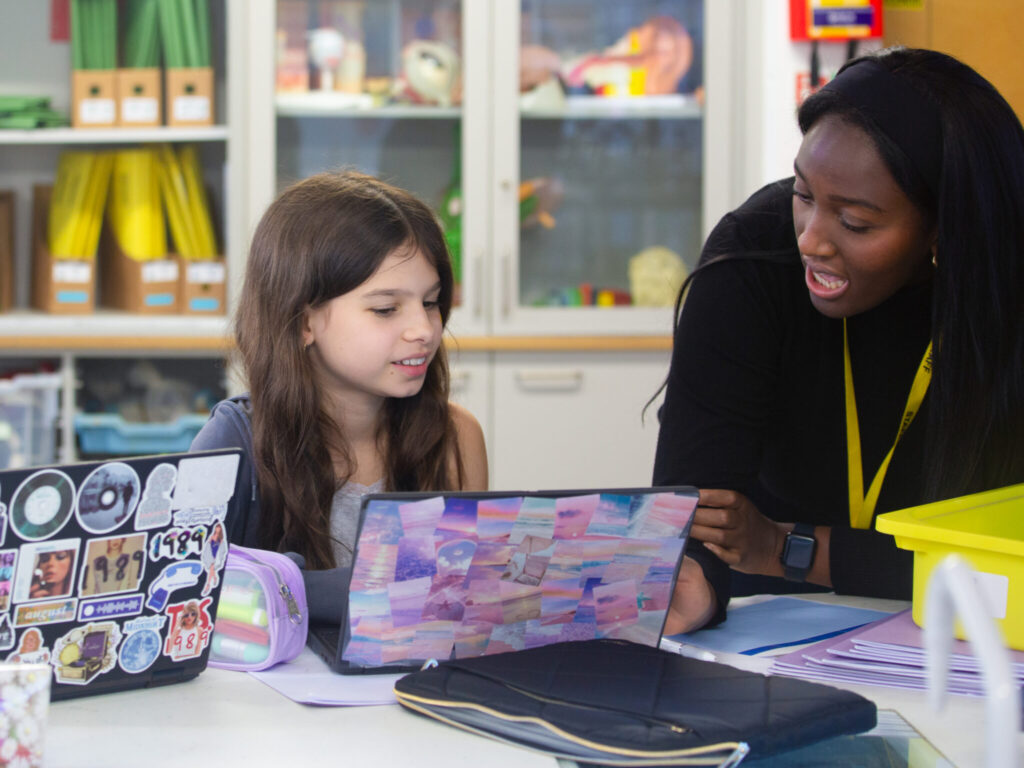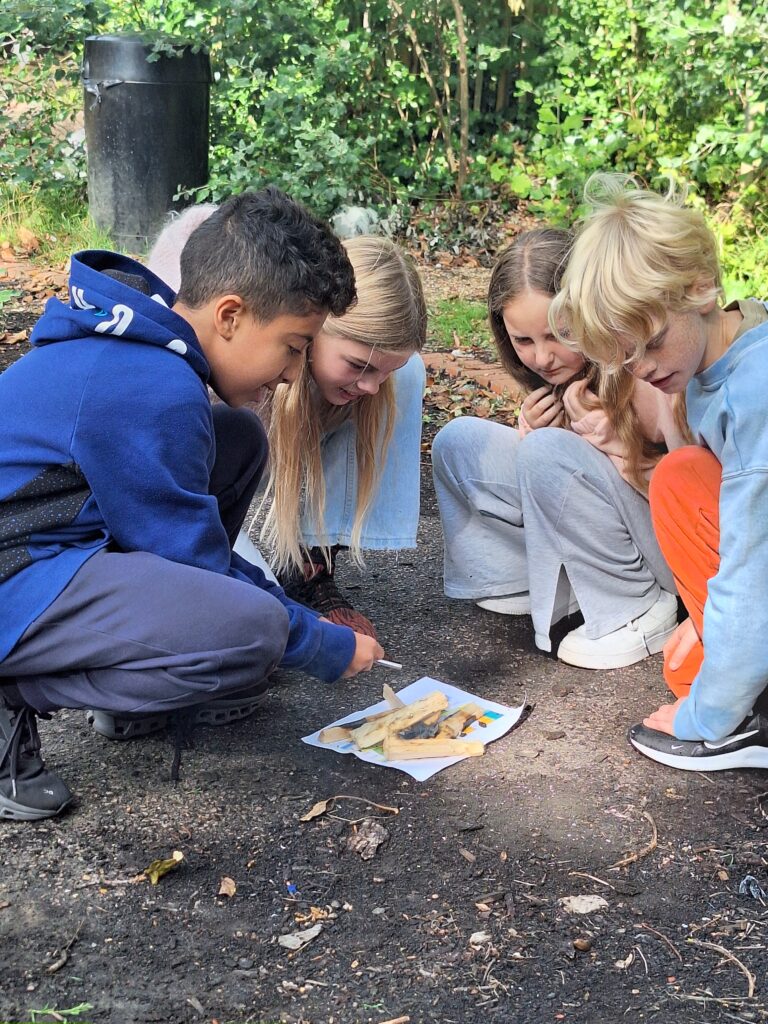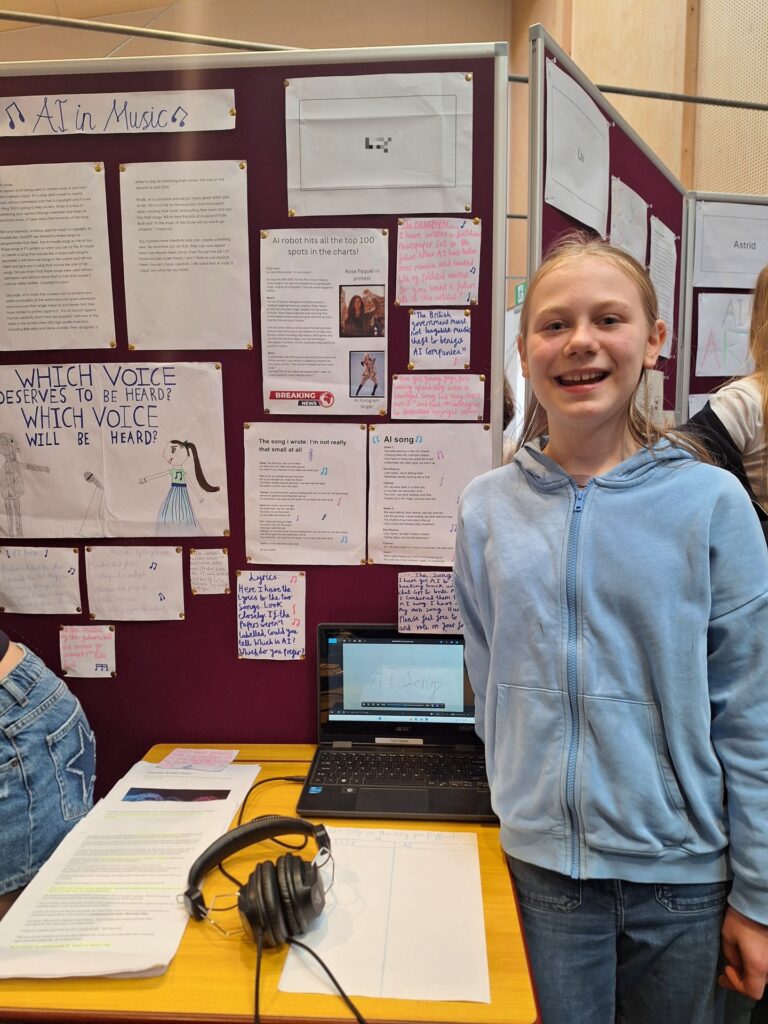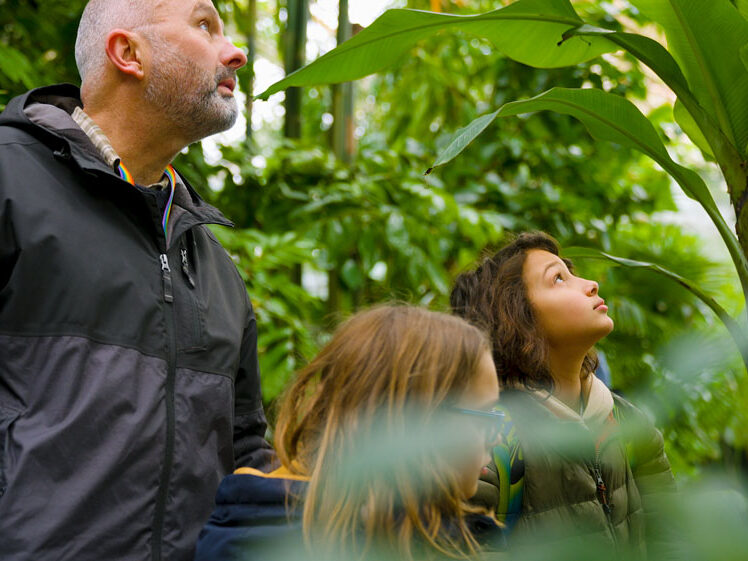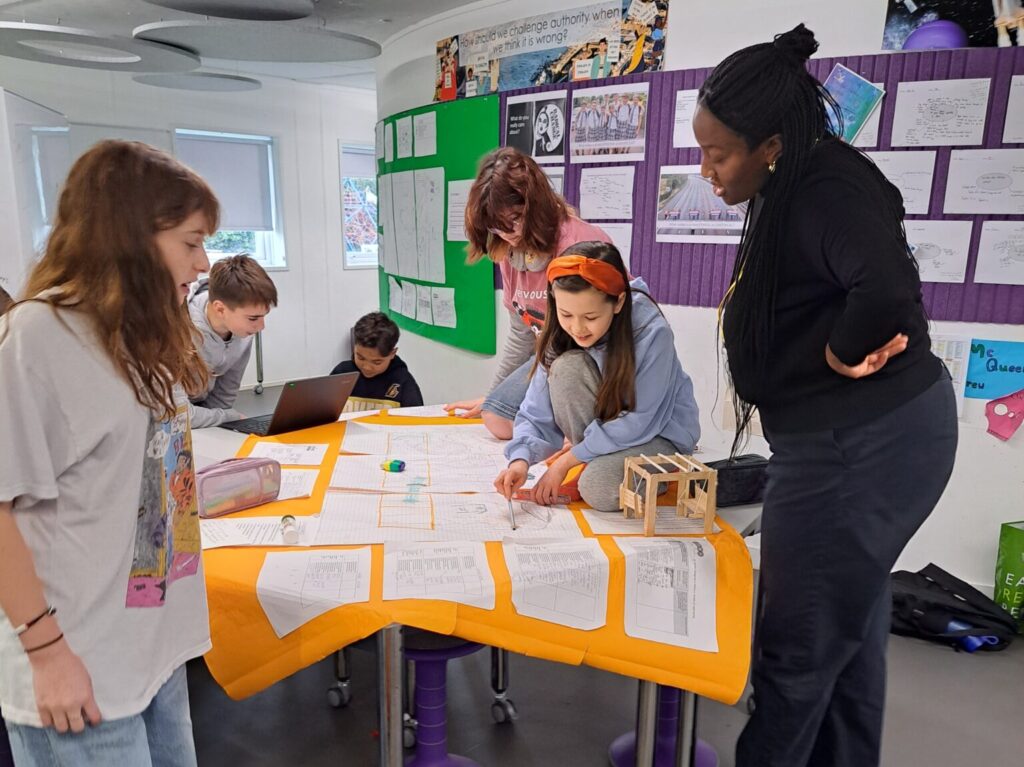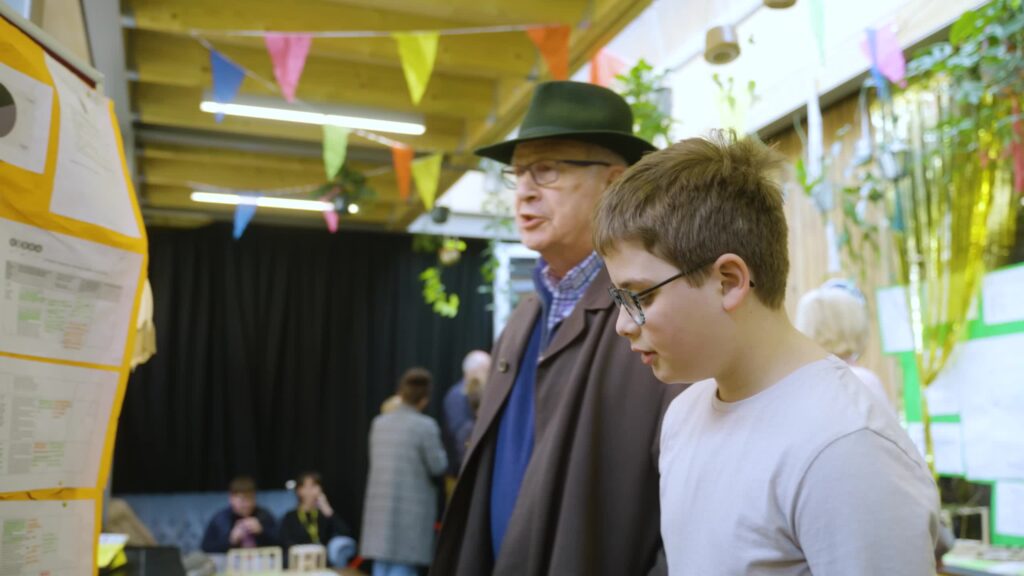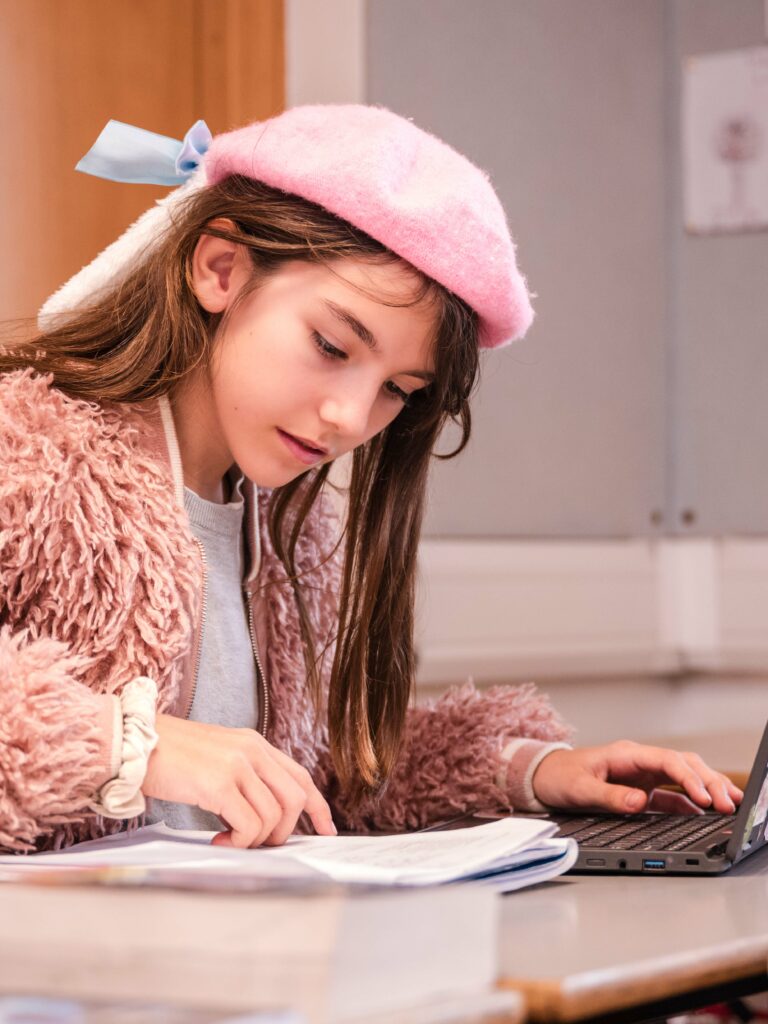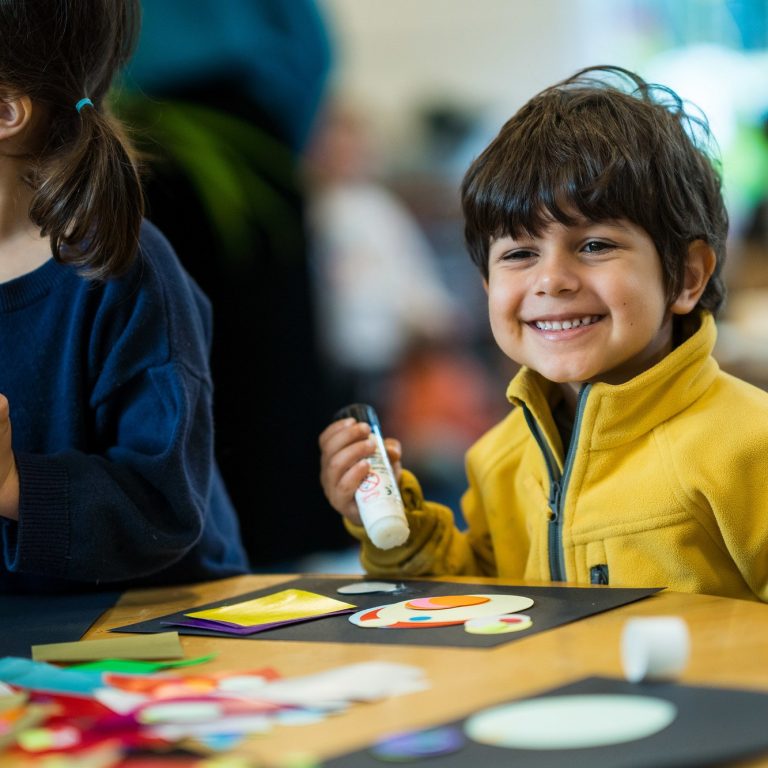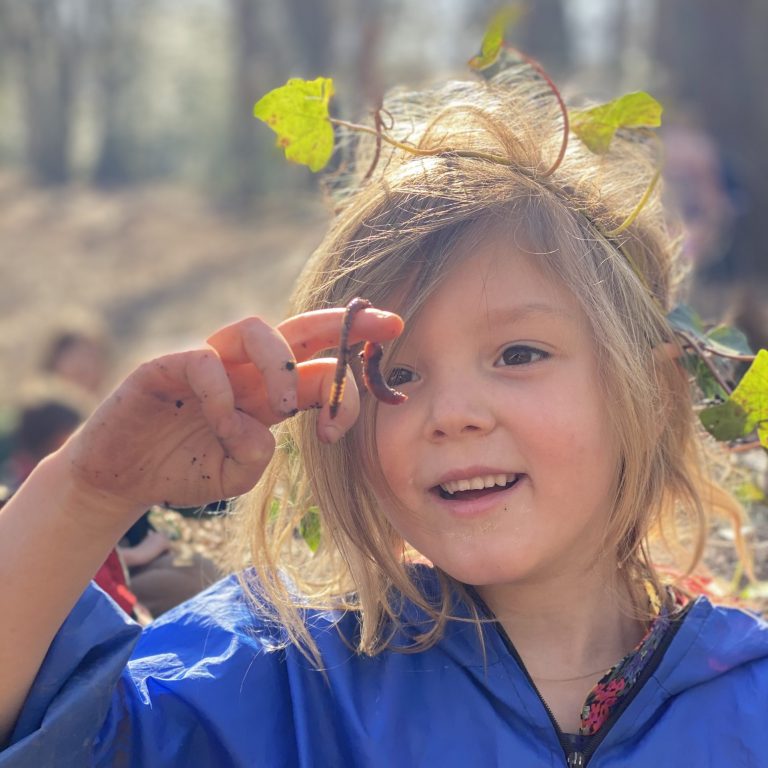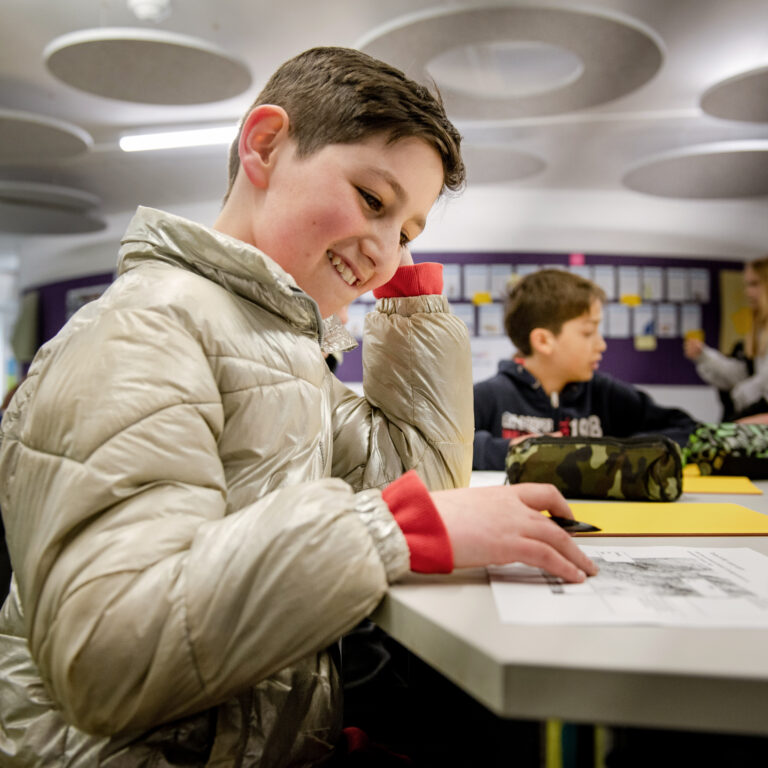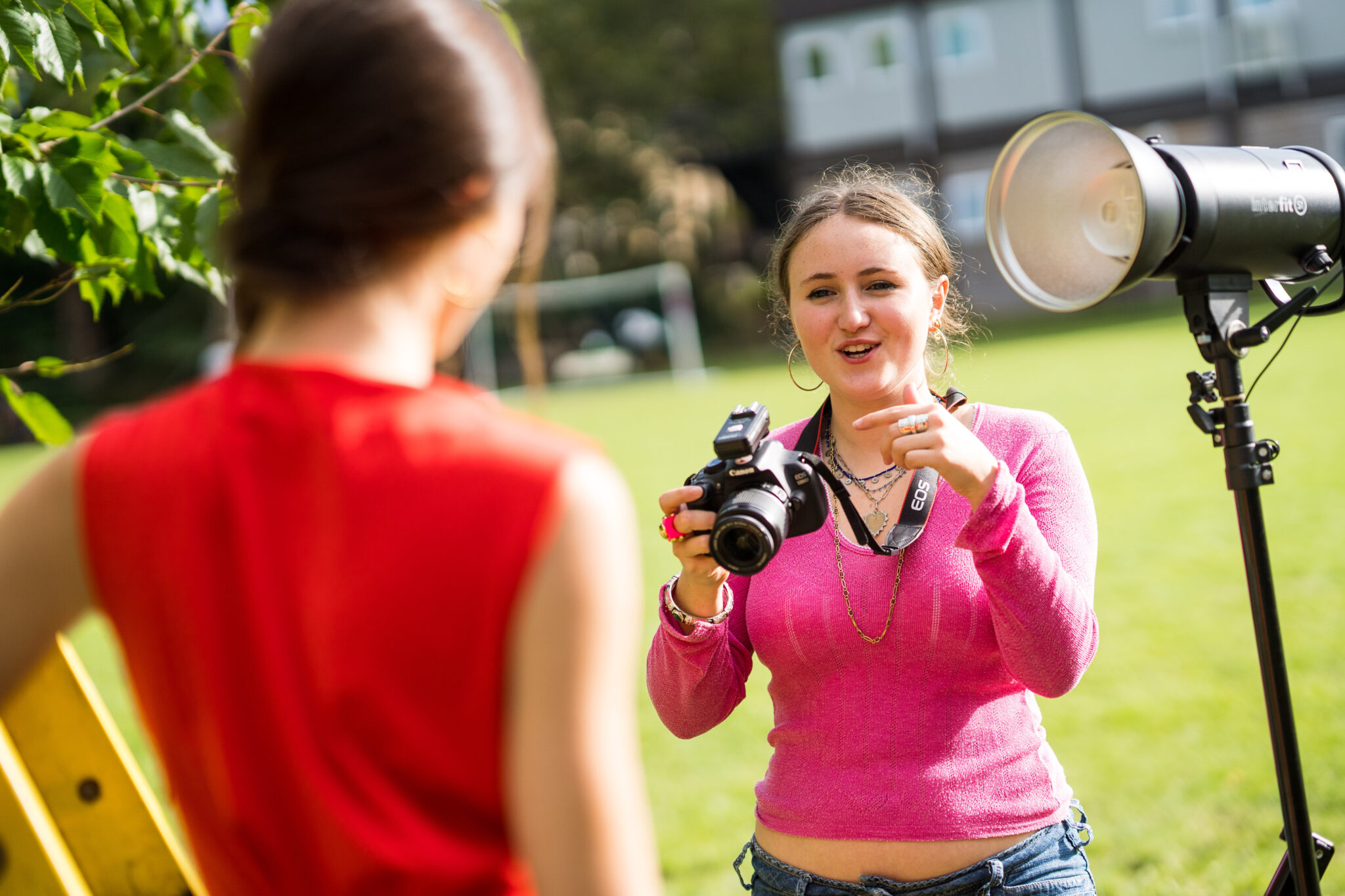Explorations – Years 6, 7 & 8
On this page:
- What are Explorations?
- Explorations in practice
- Why we use Explorations
- Explorations case study
- Explorations FAQs
What are Explorations?
Explorations at The King Alfred School are term-long projects in which students examine a ‘big question’ from a variety of academic subject perspectives.
For example, the question ‘should we fear or embrace artificial intelligence?’ might see students explore the uses of AI in Technology, but also its impacts on creativity in Art and English, similarities to the Industrial Revolution in History, and how it might be used to influence thinking in Humanities.
Delivered alongside traditional single-subject lessons, Explorations are core to our curriculum in the final year of Lower School (Year 6) and the first two years of Upper School (Years 7 and 8).
Their ‘inter-disciplinary’ nature allows for more flexibility, creativity and student agency than traditional learning approaches. They provide students with a more rounded learning experience, helping to develop their communication, collaboration and creative thinking abilities.
These transferable skills not only underpin learning, but are also essential in the wider world and workplace. We believe it is vital for students to gain real-world experience of these skills during their learning journey in order to prepare them for life beyond school.
“Employers tell us that many young people are coming into the job market with good grades but not able to function effectively in the more open-ended complex environment of the workplace. What we’re seeking to do with Explorations is give young people the skills to be successful.” – Robert Lobatto, Head Teacher
Explorations in practice
Explorations take place over the course of a term, making up 4-5 hours of students’ weekly timetable.
At the beginning of each term, students are presented with a ‘big question’ as the focus for the Exploration.
Examples of recent big questions include:
- How can individuals act to help a community stay strong?
- Is space exploration ethical?
- How should we commemorate events that we are not proud of?
- How can we tackle health inequality?
- How might we design a sensory garden that promotes wellbeing?
- Why are green spaces important in London?
Explorations are delivered in three stages:
1. Connect stage
The Exploration begins with activities connected to the big question, aimed at engaging students. For example, as part of the wellbeing garden enquiry, students visited Kew Gardens to connect with the idea of design influencing the senses.
2. Construct stage
In this stage, students focus on building – or ‘constructing – the knowledge needed in order to fully address the question.
This knowledge comes from different subject disciplines. For example, when exploring the ethics of space exploration, students studied how previous missions have contributed to life on Earth in Science, and how to use equations to calculate which planets might be habitable for humans in Maths. They also built and coded their own mini Mars Rovers in Technology, and considered how we decide what is and isn’t ethical in Ethics lessons.
3. Contribute stage
In the final stage, students apply the knowledge they have built and use it to contribute to a final project. Often, students have the freedom to choose how they communicate their learnings.
Previous end-of-Exploration projects have included Newsround-style videos, animated films, debate sessions, presentations, TED-style talks, artworks, living museums and science demonstrations.
Additionally, students occasionally display their work at an exhibition for their teachers, peers and parents. Such events provide students with a meaningful opportunity to celebrate their achievements and take pride in their hard work.
Click to read more about recent Year 7 and 8 Explorations exhibitions.
Why we use Explorations
Delivering our ethos
Since our founding in 1898, The King Alfred School’s ethos has driven a desire to give its students transferrable life skills and positive personal qualities, in addition to a keen understanding of academic subjects.
The KAS Deeper Learning Wheel illustrates how the school brings this all together within the educational experience.
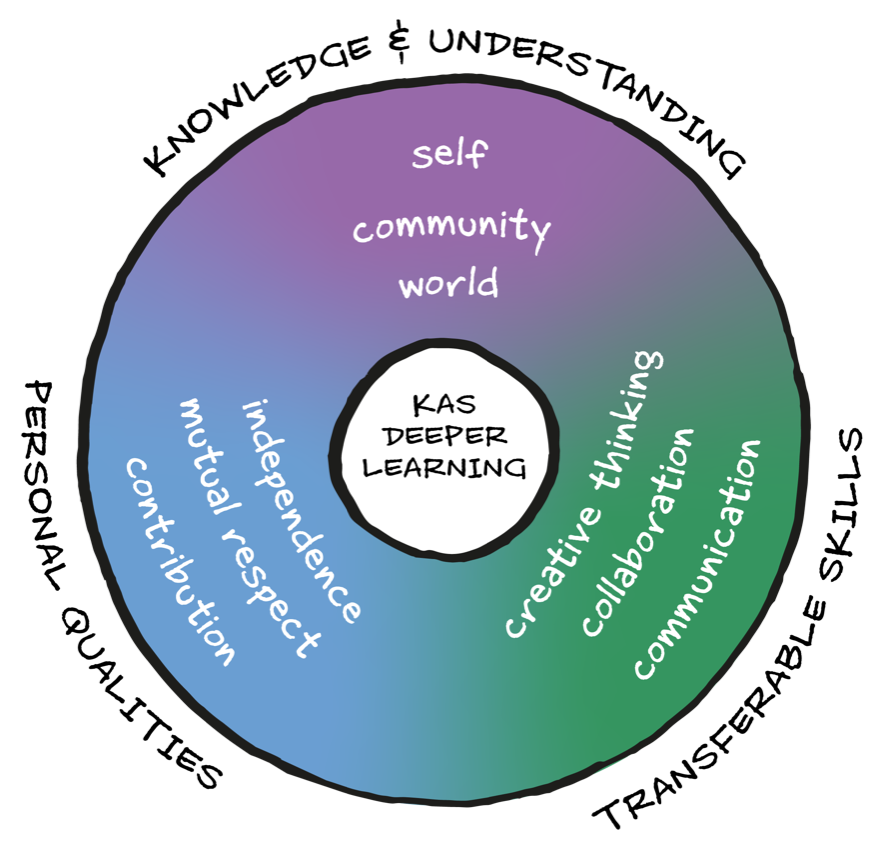
In this context, Explorations teach students:
Creative thinking
- To ask powerful questions
- To research, develop and critique ideas
Collaboration
- To discuss ideas with others
- To work together to achieve outcomes and solve problems
Communication
- To effectively respond to the big questions and practical challenges using a range of written, spoken and non-verbal methods of communication
Preparing students for life beyond KAS
The transferrable skills of creative thinking, collaboration and communication are increasingly essential in the wider world. They reflect the real-world demands of employers, who are looking for candidates who can cope with a rich variety of interconnected disciplines and tasks. In this regard, Explorations provide students with learning experiences that mirror the real world more closely.
“It’s so much more representative of what actual application of skills are beyond school. You’re not [always] given a set project, you’re not given clear expectations [so] you have to be flexible, you have to work with others. It’s a lot more unpredictable, but that’s real life.” – KAS parent
Explorations case study
Discover more about a recent Exploration in the case study below.
Year 7's sensory garden
Enquiry question: How might we design a sensory garden that promotes well-being?
Real-world context: Year 7 students were asked by the School Council to redesign an underused area of the school grounds, creating a calm and relaxing space that improves student well-being.
Connect stage
The Exploration began with a trip to Kew Gardens for students to connect to the idea of design influencing the senses. The students also surveyed the current school site to identify things that contribute to, or detract from, well-being.
Construct stage
Students spent time building relevant knowledge in Maths, Science and Design Technology, as well as the skills required for their design. These are summarised in the tables below.
| Knowledge & subject expertise | |
| Design Technology |
|
| Maths |
|
| Science |
|
| Transferrable skills | |
| Creative thinking |
|
| Collaboration |
|
| Communication |
|
Contribute stage
Each student group presented a model garden at an exhibition for parents. A spokesperson from each group also presented their model to the School Council. Each set of designs was commented on in detail by a professional landscape architect, who came into the school to work with the students on computer-aided designs of different elements of the proposed plan. The landscape architect then brought together all the elements to create a final design proposal, to be presented to the Grounds & Buildings Committee.
Explorations FAQs
How are Explorations assessed?
It is our strong belief that young people thrive best without unnecessary pressure, stress, or fear. As a result, our Explorations programme is not constrained by a rigid, heavy-handed assessment system.
However, it remains vital for our students to recognise their achievements and identify areas for growth. Students therefore undertake one piece of assessment per subject during the Construct stage, so that both students and teachers can gauge current understanding and application of skills and knowledge.
Students also benefit from rigorous formative assessment of skills and knowledge in the Contribute stage. The aim of which is to gauge the learner’s progress and highlight any gaps in knowledge, as opposed to evaluating the final product. Our approach emphasises collaboration, assessing work with students rather than imposing assessment on them.
At the end of each Exploration, students also engage in self-assessment. They consider the specific ways in which the enquiry has developed their creative thinking, collaboration and communication skills, with reflective questions further guiding them to understand their learning journey. These self-assessments are reviewed by a teacher, who gives feedback focused on clarifying, questioning and building on the students’ reflections.
What are the benefits of Explorations?
We believe Explorations result in highly effective learning, particularly due to the following key pillars:
-
Students have choice and autonomy
Students are provided with options throughout the learning process, including which activites they undertake and the topic and/or format of their final presentation.
Benefits: Students feel empowered and actively involved in their education, which in turn increases motivation and instils a sense of ownership in their learning journey.
-
Students explore topics with real-world relevance and personal interest
Students are able to solve real-world problems, explore areas of personal interest, and work on projects that have positive impacts for the school or their community.
Teachers present questions, topics, case studies and examples that mirror real-world challenges. They invite relevant guest speakers into school and plan educational trips that connect theory to practice.
Benefits: Connecting educational content to students’ lives fosters engagement and shows the practical value of learning.
-
Students have clear guidance and scaffolding
Each Exploration is thoroughly planned to maximise learning, and students are supported throughout. Clear step-by-step instructions or checklists are provided for complex tasks, and formative assessment and feedback is offered to guide students at each stage.
Benefits: Breaking down tasks into manageable steps ensures learners can progress without feeling overwhelmed.
-
Students are empowered to respond in their own way
Explorations celebrate unique approaches and outcomes. The use of open-ended enquiry questions allows for a diverse range of perspectives and solutions, with students encouraged to experiment with multiple modes of expression (such as essays, videos, presentations and/or artwork).
Benefits: Allowing diverse responses respects different learning styles, fosters creativity and personalises the learning experience.
What is the educational grounding of Explorations?
When developing Explorations, we paid close attention to the work of education consultant Kath Murdoch, a leading name in enquiry-based learning.
In her various books on the topic, Murdoch highlights the importance of doing more than identifying skills and signposting them to students. “I used to think that it was sufficient to simply check off a list of skills covered in a unit of enquiry. Now I know that such skills are actually part of the enquiry.”
We were also inspired by the inter-disciplinary learning approaches of some of our fellow schools in the Big Education network, an organisation working to transform the education system.


